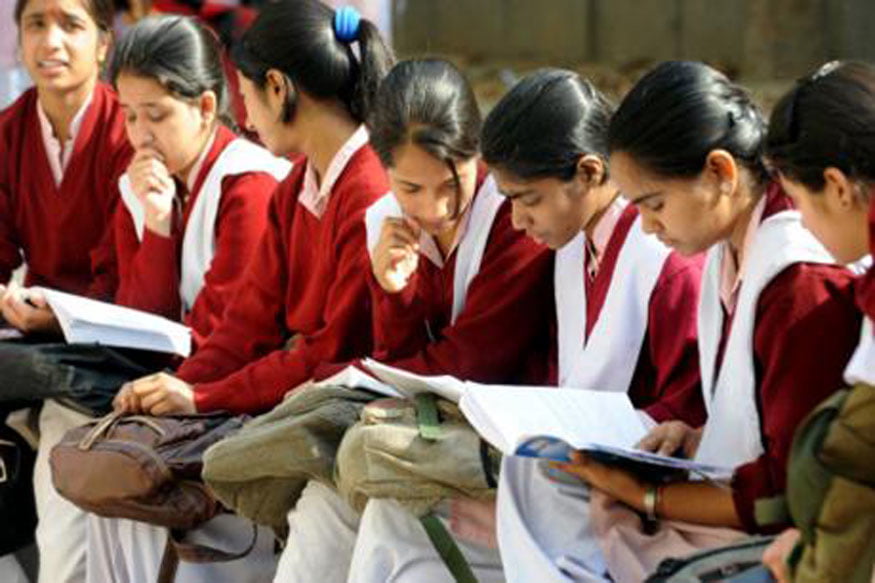
 Representational Photo
Representational Photo
The Rashtriya Swayamsevak Sangh (RSS)-backed Bharatiya Shikshan Mandal wants classical languages to be compulsory from classes IX to XII, for which they have presented certain points to the committee headed by K Kasturirangan in order to draft the New Education Policy (NEP).
They believe that learning classical is crucial for “healthy social life”. “The policy aims at strengthening the emotional integration in our national life, which is clearly present in all the sects and classical languages,” said Bharatiya Shikshan Mandal head Mukul Kanitkar.
The perspective behind this decision is that, if everyone in the country accepts Hindi to be the language of communication, no one will leave it out. “Then, the subjects that are neglected by students as they do not generate jobs, can be taken up to be taught in schools,” Kanitkar opines.
A delegation led by the Bharatiya Shikshan Mandal head presented the document titled ‘Bharatiya Education Outline’ to the NEP Committee, saying: “During the four-year plan – from class 9th to 12th — a student will be provided with a choice to complete his studies without learning English or Hindi, but it will be mandatory for him to learn Sanskrit or any other classical language.”
As we wait for the New Education Policy to become a reality, News18.com brings the Language policy recommendations made by BSM.
Classical Languages and the ‘Spirit of Patriotism’
Under the existing National Education Policy, the existing three-language formula means students in Hindi-speaking states should learn a modern Indian language, apart from Hindi and English, and in non-Hindi-speaking states, they should learn Hindi along with the regional language and English.
Three language formula is applicable to students from class 6th to 8th. In class IX and X, two-language formula is followed with English as a mandatory language and Hindi, or Sanskrit, or a foreign language as the second choice.
Bharatiya Shikshan Mandal is a Nagpur based colloquium, working in the education domain since 1969 for awakening “patriotism, nationalism and transforming future generation into future Nation.” They have five dimensional functional verticals: Research, Awareness, Training, Publication and Organization.
The recommendations made to the committee are based on the “feedback given by the society”.
In April 2018, BSM held a grand function Virat Gurukul Sammelan in Ujjain, which was attended by the Human Resource Development minister Prakash Javadekar, where he emphasized on “value and holistic education.” A zero draft of the national education policy is ready. The committee made a presentation last week, which will be shared with the peer groups and given a final shape.
Broadly, in the eight- year general education program recommended by them, the first language must be mother tongue and two more languages from the 8th schedule of the Constitution of India. Further, from class 9th to 12th “a student should be provided with a choice to complete studies without learning English or Hindi, but it should be mandatory for him to learn Sanskrit or any other Classical language,” he said.
Sanskrit over Hindi, English
“Some people may question this policy as they are of the opinion that Hindi — the language of communication, should be made compulsory. Hindi is not mandatory under this policy; however, there are two languages — mother tongue and Sanskrit or a classical language, which will be mandatory for the student,” said Kanitkar.
The perspective behind this decision is that, if everyone in the country accepts Hindi to be the language of communication, no one will leave it out. The subjects that are neglected by students, because they do not aid in employment, should be made compulsory. “Therefore, in this plan, study of mother tongue and any one of the classical language have been made obligatory. A student who does not wish to learn Sanskrit may choose from Arabic, Persian, Hebrew, Latin, Greek, or any other classical language,” he said.
Proposal Essential for Socio-cultural Perspective
The policy is based on the belief that a treasure trove of knowledge and values is present in our classical languages and it is very crucial for a healthy social life. This way, the policy aims at strengthening the emotional integration in our national life, which is clearly present in all the sects and classical languages.
He said, “What is happening now is, we are losing our communication and connection with Indian ethos by not studying Indian or classical languages till class 12th. By not studying that literature, we are losing communication and values and we are not able to become holistic persons, which will also help in our professional development – as a doctor or an engineer.”
Though some experts and former CBSE officials said on grounds of anonymity that nothing retrograde should be proposed, as 12th is closer to higher education and research no decision should be taken to overburden the students. The students are in a transitory phase, moving towards higher education, “there has to be linkages with that world and not a burden,” said a former CBSE official.
Spend More Time in Schools
Sangh backed organization believes since there are too many holidays, a calendar that ensures more time in school for value education should be devised.
“Presently there are too many holidays, “This duration is insufficient not only for the students, but also for the great endeavours of teaching. It has been proposed that in order to assimilate value education the working period should be increased by few more days,” said Kanitkar. In his opinion teaching Value education as a separate subject is not useful, what is important is, “bring value education in all subjects,” he said.
As of now, CBSE signed a MoU with the Ramakrishna Mission in 2014 for taking Values Education program to its affiliated schools. They prepared, a three year graded Values Education program for students of class 6, 7 and 8 called ‘Awakened Citizen Program’ for teachers and students.
[“Source-news18”]
 Representational Photo
Representational Photo

